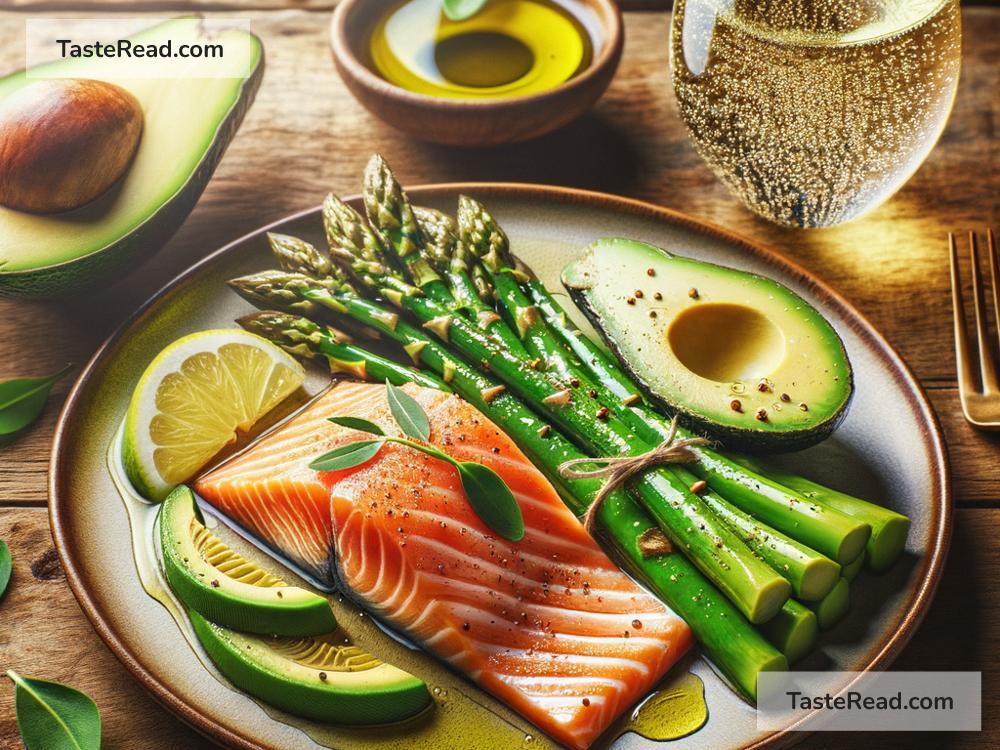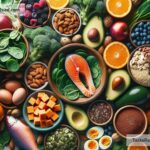How to Boost Your Body’s Incretin Response with the Right Foods
In recent years, researchers and health enthusiasts alike have been talking about the importance of incretin hormones in your body. These hormones play a big role in regulating blood sugar levels and can help prevent type 2 diabetes. If you’re wondering how food fits into all of this, you’re in the right place! In this article, we’ll explore what incretin hormones are and highlight foods that can naturally enhance your body’s incretin response—all explained in simple, easy-to-understand language.
What Are Incretins?
Before we dive into the food list, let’s break down what incretins really are. Incretins are hormones produced in your gut when you eat food. They help your body manage blood sugar levels by stimulating insulin production and reducing the release of glucagon, another hormone that raises blood sugar levels. The two main incretin hormones are:
- GLP-1 (Glucagon-like peptide-1) – This helps your pancreas produce insulin and slows down digestion.
- GIP (Glucose-dependent insulinotropic polypeptide) – Like GLP-1, GIP also encourages insulin production.
In essence, incretin hormones make sure your blood sugar doesn’t spike and keeps your metabolism functioning smoothly. A stronger incretin response can improve blood sugar control, promote weight loss, and even improve brain health.
Foods That Enhance Incretin Response
When it comes to improving your incretin response, the food you eat matters. Below is a list of foods that research suggests can help stimulate GLP-1 and GIP naturally while supporting overall gut health.
1. High-Fiber Foods
Fiber is your gut’s best friend. It doesn’t just keep your digestion healthy; it also helps boost your incretin response. High-fiber foods slow down the absorption of glucose into your bloodstream, encouraging your gut to release more GLP-1.
Examples of high-fiber foods:
– Oats
– Lentils and beans
– Whole grains (like quinoa or brown rice)
– Vegetables (such as broccoli, spinach, and carrots)
– Fruits with skin (like apples, pears, and berries)
Pro tip: Aim to pair these foods with protein to increase their blood sugar-regulating effects.
2. Fermented Foods
Fermented foods are great for gut health because they contain probiotics, which are beneficial bacteria. A healthy gut helps improve GLP-1 production and makes your body better at managing blood sugar.
Examples of fermented foods:
– Yogurt (choose unsweetened varieties)
– Kefir
– Kimchi
– Sauerkraut
– Miso
These foods work like a boost for your gut microbes, indirectly improving incretin hormone activity.
3. Healthy Fats
Fat often gets a bad reputation, but healthy fats are essential for hormone production in your body—including incretins! Omega-3 fatty acids, in particular, can improve insulin sensitivity and support GLP-1 response.
Examples of healthy fats:
– Avocados
– Nuts and seeds (almonds, chia seeds, flaxseeds)
– Extra virgin olive oil
– Fatty fish (like salmon, mackerel, and sardines)
Don’t be afraid of adding a handful of nuts to a salad or enjoying a slice of avocado toast!
4. Foods Rich in Protein
Protein-rich foods are excellent for stimulating your incretin hormones. When you eat protein, your gut releases more GLP-1, which helps regulate your blood sugar effectively.
Examples of protein-rich foods:
– Eggs
– Lean meats (like chicken or turkey)
– Fish
– Tofu and tempeh
– Legumes (like chickpeas and black beans)
Plant-based proteins work just as well as animal proteins in supporting incretin activity, so don’t shy away from experimenting with both.
5. Green Leafy Vegetables
Green leafy vegetables are nutritional powerhouses full of vitamins, minerals, antioxidants, and lots of fiber. Studies show that these vegetables may help stimulate GLP-1 release and contribute to healthier blood sugar levels.
Top picks:
– Kale
– Spinach
– Swiss chard
– Collard greens
– Romaine lettuce
Pair them with a source of healthy fat, like olive oil, to boost the absorption of nutrients.
6. Spices That Benefit Your Gut
Certain spices can enhance your incretin response by improving gut health and reducing inflammation in your body.
Examples:
– Turmeric (contains curcumin, which supports insulin sensitivity)
– Cinnamon (helps regulate blood sugar levels)
– Ginger (stimulates digestion and gut hormone activity)
Adding a pinch of these spices to your meals not only makes them tastier but also improves your metabolic health.
Lifestyle Tips for Boosting Your Incretin Response
While diet is one of the best ways to improve your incretin response, don’t forget the role of lifestyle habits. Here are a few bonus tips:
– Exercise regularly: Exercise helps your body become more sensitive to GLP-1 and insulin.
– Eat smaller, balanced meals: Large meals can strain your gut and reduce incretin efficiency.
– Stay hydrated: Drinking plenty of water supports digestion and hormone function.
– Get enough sleep: Poor sleep can hurt hormone production, including incretins.
Final Thoughts
Your incretin response is essential for maintaining healthy blood sugar levels and overall metabolism—and the foods you eat can play a big part in enhancing it. High-fiber foods, fermented items, healthy fats, protein-rich meals, green veggies, and tasty spices all work together to make your gut and hormones happy. By incorporating these foods into your daily diet, you’ll not only boost your incretin response but also improve your overall health.
Remember, small changes can make a big difference in how your body handles blood sugar. So, start adding these incretin-friendly foods to your plate today! Your future self will thank you.


